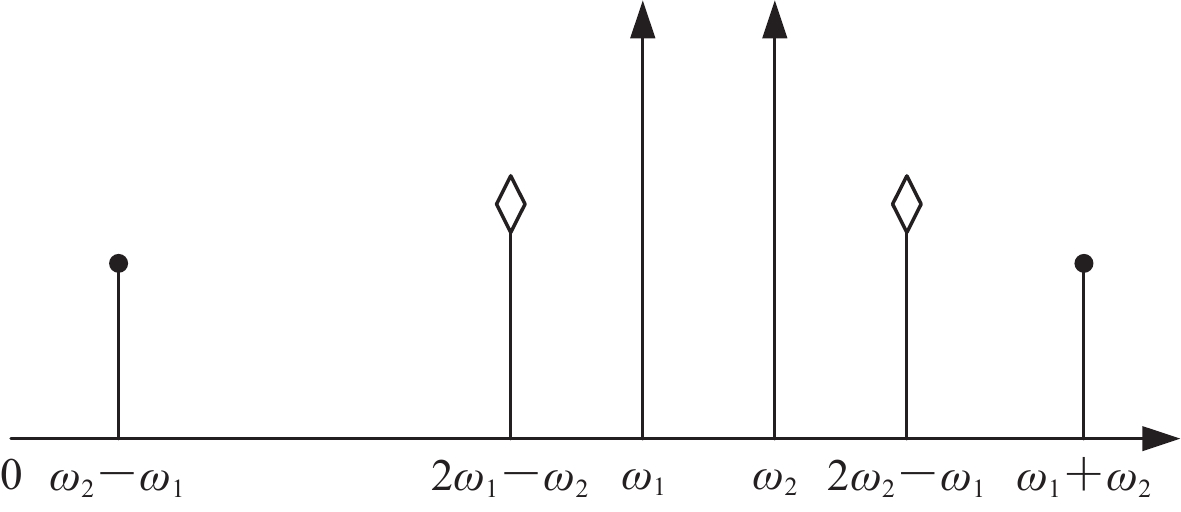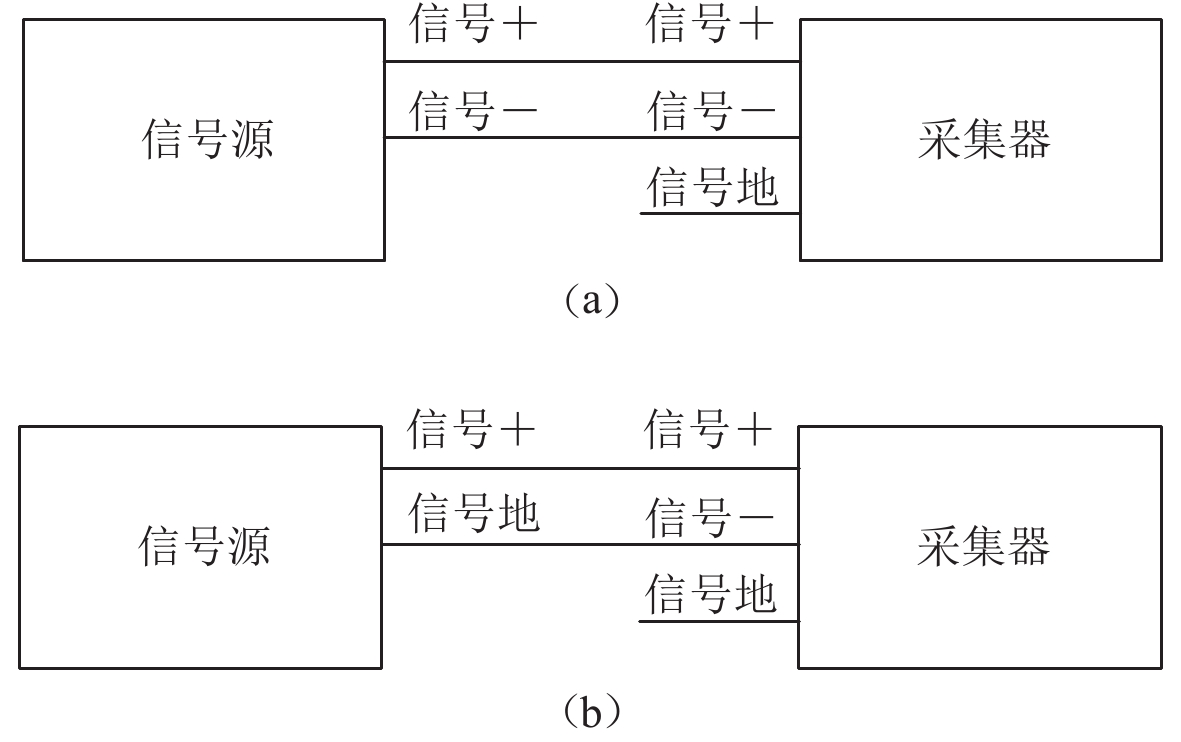Test methods for nonlinear parameters of seismic data recorders and their effect analyses
-
摘要: 为了分析总谐波失真度和互调失真度这两个非线性指标的测试方法、输入信号幅值等变化对其测试结果的影响,本文从总谐波失真信号、互调失真信号的产生原理出发,详细地给出了两种指标的测试方法、数据处理方法及相关影响分析,并通过实际应用中不同类型的输入信号进行了总谐波失真度和互调失真度试验。测试结果表明:信号模式和信号幅值对总谐波失真度的影响显著;输入信号幅值对互调失真度的影响较大;输入信号的频率变化对两指标的测试结果无影响。本研究进一步细化了地震数据采集器性能指标的标准化测试方法,该方法可广泛应用于地震数据采集器的非线性指标测试。Abstract: Total harmonic distortion (THD) and intermodulation distortion (IMD) characteris-tics are two important nonlinear parameters of seismic data recorders. Input signal mode and peak value of sine-wave can affect the test results of these two characteristics. In order to deter-mine these effects, the basic principles on THD and IMD were introduced in this paper, and then test methods, data processing methods and effect analyses on THD and IMD were fully presented. Finally, some different kinds of sine-waves were input into the seismic data recorder to test THD and IMD. The test results show that the two signals with the same peak value but different input-mode have great impact on THD, and those with the same frequency but different peak value of sine-wave have great impact on IMD. However, signal frequency variation has no impact on THD and IMD. The research in this paper is of great value for quality test of seismic data recorder, which can be applied to test THD and IMD of seismic data recorders.
-
-
表 3 不同信号频率下总谐波失真度THD测试结果
Table 3 Test result of total harmonic distortion THD with different signal frequencies
通道号 THD/dB 信号频率5 Hz 信号频率10 Hz 18Vpp 36Vpp 18Vpp 36Vpp 1 −96.924 0 −91.407 2 −93.976 4 −94.200 1 2 −96.829 8 −91.262 9 −93.913 6 −93.873 7 3 −96.116 8 −91.764 5 −91.830 8 −93.511 5 表 1 总谐波失真度THD测试结果
Table 1 Test result of total harmonic distortion THD
通道号 THD/dB 单端输入 差动输入 1 −73.973 3 −96.924 0 2 −74.731 4 −96.829 8 3 −74.726 2 −96.116 8 表 2 差动输入下的总谐波失真度THD测试结果
Table 2 Test result of total harmonic distortion THD with differential input
通道号 THD/dB 4Vpp 9Vpp 18Vpp 36Vpp 1 −78.006 6 −95.814 0 −96.924 0 −91.407 2 2 −78.008 4 −94.114 1 −96.829 8 −91.262 9 3 −78.006 2 −95. 411 1 −96.116 8 −91.764 5 注:Vpp代表信号幅值为峰峰值,下同。 表 4 互调失真度IMD测试结果(采样率为100 Hz)
Table 4 Test result of intermodulation distortion IMD (sample rate is 100 Hz)
量程/V 互调失真系数 IMD/dB 通道1 通道2 通道3 通道1 通道2 通道3 5 0.004 6% 0.004 1% 0.003 6% −86.68 −87.70 −88.82 20 0.029 0% 0.085 8% 0.045 0% −70.81 −67.55 −66.90 表 5 互调失真度IMD测试结果(采样率为100 Hz,量程为20 V)
Table 5 Test result of intermodulation distortion IMD (sample rate is 100 Hz,range is 20 V)
幅值/V 互调失真系数 IMD/dB 通道1 通道2 通道3 通道1 通道2 通道3 0.75 0.009 5% 0.009 5% 0.009 6% −80.39 −80.39 −80.34 3 0.041 0% 0.089 0% 0.145 0% −67.73 −61.32 −56.79 表 6 互调失真度IMD测试结果(采样率为100 Hz,量程为5 V)
Table 6 Test result of intermodulation distortion IMD (sample rate is 100 Hz,range is 5 V)
信号频率/Hz IMD/dB 通道1 通道2 通道3 1,1.1 −86.68 −87.70 −88.82 5,5.1 −85.74 −86.16 −86.26 表 7 互调失真度IMD仿真结果与实际测试结果比较(采样率为100 Hz,量程为5 V)
Table 7 Comparison between simulation result and actual test result of intermodulation distortion IMD (sample rate is 100 Hz,range is 5 V)
通道号 互调失真系数 IMD/dB 实际测量 仿真测试 实际测量 仿真测试 1 0.004 6% 0.000 002% −86.68 −153.84 2 0.004 1% 0.000 002% −87.70 −154.28 3 0.003 6% 0.000 002% −88.82 −153.37 -
何芹. 2015. 高速高精度ADC频域特性测试方法研究[D]. 无锡: 江南大学: 7–15. He Q. 2015. Research on Frequency-Domain Characteristics Testing Methods for High Speed and High Precision ADCs[D]. Wuxi: Jiangnan University: 7–15 (in Chinese).
李彩华,滕云田,张旸,胡星星. 2014. FFT和DFT在地震数据采集器幅频特性测试中的应用[J]. 地震学报,36(5):956–963 Li C H,Teng Y T,Zhang Y,Hu X X. 2014. Applications of FFT and DFT in amplitude-frequency characteristic test of seismic data recorders[J]. Acta Seismologica Sinica,36(5):956–963 (in Chinese)
刘亮. 2014. Sigma Delta数字加速度计中谐波失真分析及优化[D]. 哈尔滨: 哈尔滨工业大学: 21–24. Liu L. 2014. Analysis and Optimization for Harmonic Distortion of Sigma Delta Accelerometer[D]. Harbin: Harbin Institute of Technology: 21–24 (in Chinese).
刘益成,易碧金,罗福龙. 2006. 地震数据采集系统谐波畸变测试方法研究[J]. 石油物探,45(4):431–434 doi: 10.3969/j.issn.1000-1441.2006.04.018 Liu Y C,Yi B J,Luo F L. 2006. Testing method for harmonic distortion of seismic data acquisition system[J]. Geophysical Prospecting for Petroleum,45(4):431–434 (in Chinese)
杨健. 2014. 四阶前馈Σ-ΔADC中噪声与谐波失真分析及验证[D]. 哈尔滨: 哈尔滨工业大学: 6–14. Yang J. 2014. Analysis and Verification of Noise and Harmonic Distortion of Fourth-Order Feed-Forward Sigma-Delta Modulator[D]. Harbin: Harbin Institute of Technology: 6–14 (in Chinese).
张永学,印兴耀,宋建平,张在陆,薛会珍. 2008. 测试地震数据采集系统总谐波畸变的剪切FFT算法[J]. 石油地球物理勘探,43(3):252–256 doi: 10.3321/j.issn:1000-7210.2008.03.003 Zhang Y X,Yin X Y,Song J P,Zhang Z L,Xue H Z. 2008. An algorithm testing total harmonic distortion of seismic data acquisition system:FFT Pruning algorithm[J]. Oil Geophysical Prospecting,43(3):252–256 (in Chinese)
中国地震局监测预报司. 2016. 地震数据采集器质量检测技术规程[S]. 北京: 中国地震局: 7–8. Department of Earthquake Monitoring and Prediction, China Earthquake Administration. 2016. Technical Specification for Quality Inspection of Seismic Data Acquisition Unit[S]. Beijing: China Earthquake Administration: 7–8 (in Chinese).
Alegria F C,Da Silva H P. 2012. Choosing between terminal and independently based gain and offset error in the ADC histogram test[J]. IEEE Trans Instrum Meas,61(1):9–16 doi: 10.1109/TIM.2011.2161014
Christian H. 1994. Intermodulation distortion (IMD)[EB/OL]. [2018-05-03]. http://www.ti.com/lit/an/sboa077/sboa077.pdf.
Offelli C,Petri D. 1991. Weighting effect on the discrete time Fourier transform of noisy signals[J]. IEEE Trans Instrum Meas,40(6):972–981 doi: 10.1109/19.119777





 下载:
下载:

